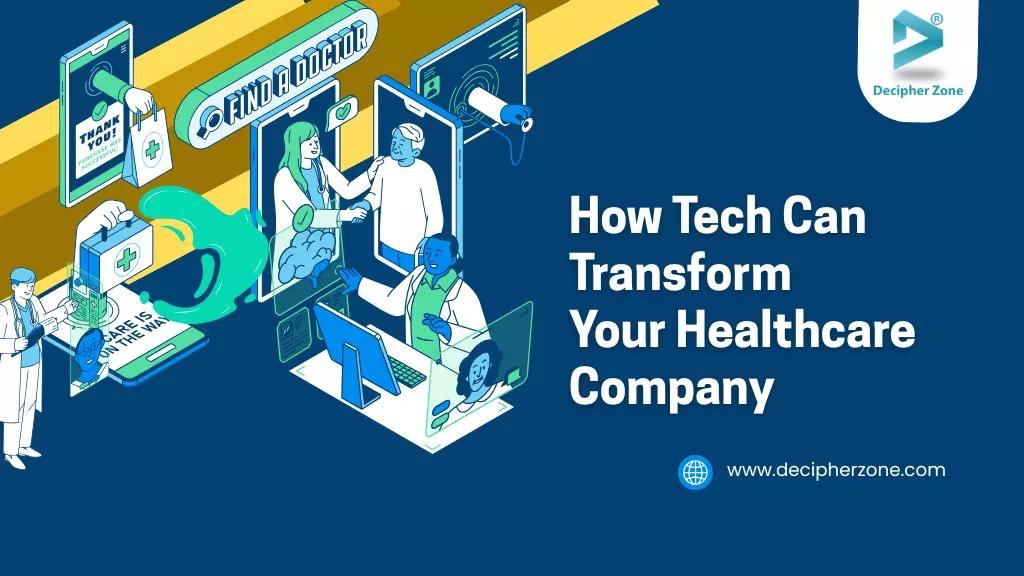There was a time when healthcare companies were all about huge filing cabinets groaning with paperwork, but you know what? That’s no longer the case, or at least it doesn’t and shouldn’t have to be, because technology has come on leaps and bounds, making it easier than ever for healthcare companies to be efficient, effective, and offer a great service to patients.
Sound good? Read on to learn more about how you can transform your healthcare company with tech.
Embracing Electronic Health Records
Remember when patient charts were fat binders that always went missing just when you needed them most? Electronic Health Records, or EHRs, have changed the game. With encrypted cloud storage, your team can access patient history in seconds. That means no more frantic riffing through paper files when a patient shouts, “Did you record my allergy to penicillin?”
EHRs improve accuracy, reduce transcription errors and let you generate reports faster than you can say “HIPAA compliance.” Best of all, they free staff from filing cabinets, so they can focus on patient care, not paper cuts.
Your Patients Will Appreciate the Commute-Free Experience of Telemedicine
Telemedicine sounded futuristic just a few years ago, right? Well, today it’s as common as checking your Instagram feed or finding a new recipe online and this is good news for patients and companies alike. Video consultations let patients see their favourite providers from the comfort of home, reducing no-shows and increasing appointment capacity.
It also cuts down on waiting room congestion, which means fewer cranky patients tapping their toes. Make sure your platform is secure and user-friendly; a glitchy video call is about as welcome as a flat tyre on the way to work.
AI and Data Analytics Provide the Crystal Ball
You might think AI is only for self-driving cars or sci-fi movies. In healthcare, data analytics powered by AI can predict patient admissions, flag high-risk individuals and optimise staffing levels. Imagine knowing, weeks in advance, that your flu ward will fill up.
Suddenly you’re not scrambling for overtime approvals at 2 a.m. Instead, you’re calmly reallocating resources, confident in the forecast. Use dashboards that visualise trends in admissions, readmissions and prescription refills, so you can make decisions backed by hard data, rather than gut feelings.
Automated Workflows and the Marvel of Healthcare VAs
Automation is not fearsome robot takeover. It’s your friend in reducing repetitive tasks. Automated billing, for example, cuts down on claim denials and speeds up reimbursements. And if you need that human touch for nuanced tasks, healthcare VAs are a good choice.
They are real humans working remotely, not AI, and they can handle appointment scheduling, insurance verification and follow-up calls. By combining automated systems with skilled virtual assistants, you create a well-oiled machine that keeps revenue flowing and administrators smiling.
Cybersecurity
If you think cybersecurity is optional, think twice. A data breach can cost millions in fines, not to mention reputational damage. Implement multi-factor authentication, keep software patched and train staff to recognise phishing attempts.
You may be tempted to treat security like a checkbox, but consider it an investment. A breach is like letting a villain loose in your EMR system. Guard your data as fiercely as you guard your prescription pads.
Mobile Apps and Patient Engagement
Everyone has a smartphone glued to their hand. Why not use that device as a tool for better healthcare? Mobile apps can remind patients of upcoming appointments, prompt medication adherence and deliver personalized health tips.
A friendly push notification that says “Time for your blood pressure check” is more effective than a mailed postcard that lands under a pile of junk mail. Plus, apps offer an opportunity to gather patient-reported outcomes, which can guide treatment plans and improve satisfaction.
Wearables and Remote Monitoring
Fitbits, smartwatches and other modern-day wearables collect real-time health data, from heart rate to sleep patterns. By integrating this data into your healthcare platform, providers can monitor chronic conditions more closely and intervene before minor issues become major crises.
Remote monitoring can reduce hospital readmissions, lower costs and give patients a sense of empowerment. They feel connected to their care team even when they’re binge-watching their favourite shows on the sofa.
As you can see, with the right software, your healthcare company can become a much more effective, efficient, well-oiled machine than it is right now, which will not only be good for your business, but also great for your customers too, and they are the ones who really matter when you are deli vering healthcare, right?

